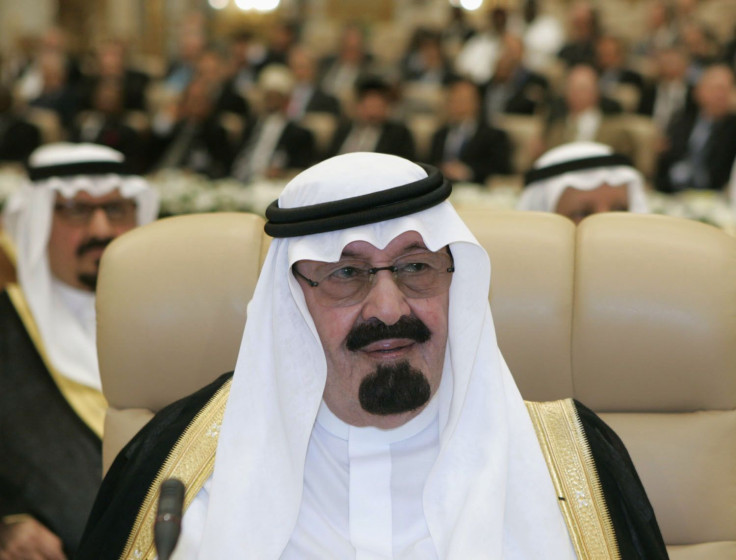Future Of Arab Peace Initiative With Israel Unclear After Saudi King Abdullah's Death

Saudi King Abdullah bin Abdulaziz al-Saud's death Friday has raised questions about the future of his long-standing efforts to establish peace between Israel and the Arab world. The 90-year-old ruler had been hospitalized for a lung infection before his death was announced.
Abdullah founded the Arab Peace Initiative at the 2002 Beirut summit of the Arab League. The text of the declaration called upon Israel to withdraw from occupied Arab territories and accept the establishment of an independent and sovereign Palestinian state. In return, Arab leaders agreed to sign a peace agreement with Israel that would establish normal relations in the region. It was unanimously reaffirmed at the March 2007 Arab League summit in Saudi Arabia attended by all 22 Arab member states except Libya.
U.S. President Barack Obama praised Abdullah for taking “bold steps” to advance the Arab Peace Initiative. “As a leader, he was always candid and had the courage of his convictions,” Obama said. “One of those convictions was his steadfast and passionate belief in the importance of the U.S.-Saudi relationship as a force for stability and security in the Middle East and beyond.”
In 2013, Secretary of State John Kerry traveled to Jerusalem to help reintroduce the Arab Peace Initiative, which he has called the starting point for a comprehensive regional solution to the Arab-Israeli conflict. Other U.S. leaders also advocated for the plan in recent years. “The King of Saudi Arabia started lining up all the Arab countries to say to the Israelis, ‘If you work it out with the Palestinians … we will give you immediately not only recognition but a political, economic, and security partnership,’” former U.S. President Bill Clinton said in 2011. “This is huge. … It’s a heck of a deal.”
Israeli leaders have long been divided over whether to accept the outline of the initiative. Former Israeli Prime Minister Ehud Olmert has said Israel should embrace the Arab Peace Initiative. “We are speaking of an opportunity that must be seized to renew the diplomatic process. … It’s a very important development,” he said, according to the Center for American Progress, a Washington-based think tank. In November, Prime Minister Benjamin Netanyahu allegedly called the Arab Peace Initiative a potential “vehicle that can get negotiation going with the Arab world,” according to the Times of Israel.
Other Arab leaders have also advocated for the peace deal. In January, Egyptian President Abdel-Fattah el-Sissi called for a revival of the Arab Peace Initiative at a Cairo donor conference dedicated to raising money for Gaza. “We should turn this moment into a real starting point to achieve a peace that secures stability and flourishing and renders the dream of coexistence a reality, and this is the vision of the Arab Peace Initiative,” Sissi said, according to The Jerusalem Post.
Abdullah became the de facto leader of Saudi Arabia in 1995 after his brother died of a stroke. It's unclear if Saudi leaders will continue to push for passage of the Arab Peace Initiative in the future.
© Copyright IBTimes 2024. All rights reserved.












